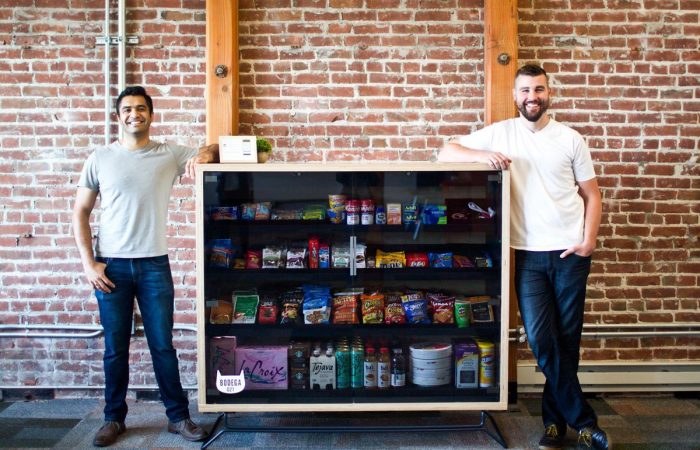
Villains in the Valley: How America’s Innovators Have Lost Their Way
By Zach Kliger
Silicon Valley startup Bodega believed they could reinvent the traditional corner store as a glorified vending machine — and they were very, very wrong. As soon as the idea got out into the wild, it faced a blistering social media firestorm. It turns out America doesn’t want its neighborhood bodegas replaced by a technified snack box.
Bodega in Silicon Valley failed to realize that for many people, neighborhood bodegas are more than an accessible receptacle of non-perishable goods. They are comfort and tradition and community. You can go to one and get something warm to eat, or have a friendly conversation. These essential ingredients of what make bodegas special were stripped away by a company that dared to take that name for their own. Bodega’s team fundamentally missed the point, and now they’re paying the price for it.
The story of Silicon Valley is no longer about intrepid, radical innovators — underdogs who challenged the establishment and changed the world against all odds. Slowly but surely, Silicon Valley has become the establishment, so bloated and myopic and out of touch with the rest of the world that it has lost perspective. And along the way, people have stopped believing in Silicon Valley’s potential to improve their lives.
In a world beset by significant challenges, the Valley gives America yet another delivery company for urbanites; no wonder people are rolling their eyes, rather than being awed by the next big step forward. The days where Silicon Valley, America’s hotbed of innovation, was seen as something to be proud of and excited by are gone. Each new scandal or PR breakdown leads consumers to treat startups more like jokes than as the heroic tech pioneers of yore.
Has the well of innovation run so dry that our brightest innovators cash in on absurdity over utility?
No. But in their hubris, Silicon Valley has begun to see themselves as the hero of America’s story, when in reality, they are quickly becoming the villain. Even at Apple, the standard for how California’s geniuses can transform everyday life, the charm is gone. The tiny, iterative tiptoes forward help the bottom line, but they frustrate more than they excite. When customers have to hack new products just so that they’re a bit more like an older, superior version, it’s worth asking who the hero of the brand story really is.
While the innovative potential seems to have died away, arrogance has simultaneously ballooned out of control. Many of the meltdowns in recent months can be chalked up to an overwhelming egotism that has become the trend and the expectation. When a brand sees itself as superior to its customers, it can easily backfire — and it’s backfiring on Silicon Valley right now.
Now, we define Silicon Valley success not by a product’s capacity to improve people’s lives, but by its ability to rake in dollars. We define innovation according to how sexy and audacious an idea is, and whether or not a founder can generate a rabid cult of personality. This may be good for securing a unicorn valuation or for the short-term bottom line, but it is inarguable that long-term value is driven by customers’ affection.
The point here is not to remonstrate tech companies for their unchecked pride. Neither is the purpose to signal the death knell of innovation and opportunity. But if Silicon Valley is going to keep tapping its innovative potential, the story must change. It’s time for a dose of humility, a step back, and a mentality that elevates the customers and puts their needs first.
That kind of shift in the narrative goes deeper than a superficial refashioning of image. Bodega didn’t merit such a negative reaction because of bad marketing. That may have played a part, but the product itself was fundamentally flawed to begin with. When you set out to build a product it’s going to tell a story.
Bodega’s snack boxes implied people don’t need the genuine article anymore. That a fancy vending machine is just as good — or better — than a family business. That what’s valuable about a bodega is only the things it sells, and that the human connection doesn’t matter anymore. Tech-driven convenience alone is a story no one wants to hear anymore.
Compare Bodega with AirBNB or Lyft, two companies with the same roots in using technology for convenience. Their disruption felt authentic: allowing convenience for consumers, while empowering others (drivers or homeowners) to unlock the value of their own skills and assets. Their billion-dollar valuations are based on more than just technology: they recognize the hero of their story.
Silicon Valley may no longer be capable of credibly telling an underdog story. Still, that doesn’t mean that it’s beyond redemption. There’s still a hero to their narratives — it just isn’t them. Startups like Bodega must cede the role of the hero back to their customers. Not just in their marketing, but in the way that they build products.
It’s true that there may never be heroes in Silicon Valley again, but there can still be mentors, sages, and exemplars — guides and pathfinders that equip the true hero, the customer, with the tools they need to achieve their dreams. Now, that is a story worth telling, and it’s one that we all want to hear.
Zach Kliger is an associate at Woden. Whatever your storytelling needs may be, Woden can help. Read our extensive guide on how to craft your organization’s narrative, or send us an email at connect@wodenworks.com to discuss how we can help tell your story.


